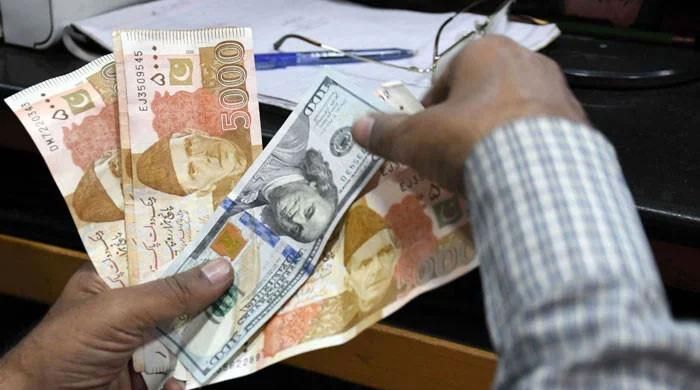- The rupee is expected to trade at Rs 325 per dollar by June 2025.
- It could likely depreciate to Rs295 by the end of December 2024.
- The monetary policy rate will remain between 17% and 19% until the end of the year.
KARACHI: The Pakistani rupee, currently trading at Rs 278 per dollar, is expected to depreciate to Rs 295 by the end of December 2024 despite the government's hope of getting a fresh bailout package from the International Monetary Fund (IMF). News reported on Sunday.
“As Pakistan navigates these turbulent waters, we expect economic challenges to persist in the near term with elevated inflation and contracting demand,” Tresmark said in a note to clients issued a day earlier.
The prediction comes after remarks by State Minister for Finance Ali Pervaiz Malik, who said the government was expecting an IMF bailout of over $6 billion after addressing all the lender's requirements in its tax-laden budget.
In the budget, the government raised taxes on the already burdened salaried class, brought exporters under the regular tax regime, increased the tax on oil and imposed new taxes on the real estate sector, among others, to increase revenue generation aimed at stabilizing the country's economic indicators.
“We hope to finish this [IMF] “The process will take place in the next three to four weeks,” Malik said. Reuters.
This week, the rupee traded within narrow ranges due to balanced dollar supply and demand dynamics in the market and saw minor fluctuations throughout the week before recovering losses to close at Rs278.37 on Friday.
Elaborating on the performance of the local currency, Tresmark's advisory said the rupee is projected to trade at Rs295 against the dollar by the end of this year and Rs325 by June 2025.
Positive indicators such as a narrowing trade deficit and a resilient stock market suggest a gradual economic recovery, and the expected agreement with the IMF, which is expected to provide between $6 and $8 billion, is seen as crucial to stabilising the economy, Tresmark said.
However, the potential implications of the Finance Bill's fiscal measures and rising fuel prices could put further pressure on purchasing power and demand, the report warned.
As for the monetary policy rate, it is expected to remain between 17 and 19% until December 2024 to counter growth-related inflationary pressures.
Meanwhile, Sakib Sherani, an economist who runs the private firm Macro Economic Insights, believes a quick deal with the IMF was needed to avoid pressure on the country's foreign reserves and currency due to falling debt repayments and the effects of the removal of capital and import controls that were previously in place.












